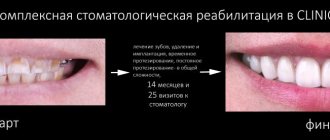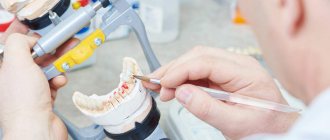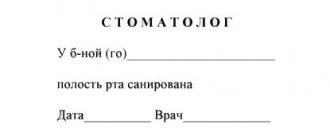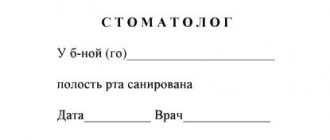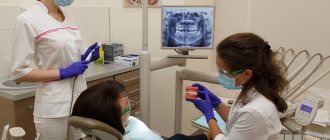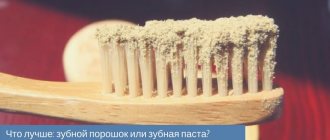Photo source senivpetro/freepik
A beautiful smile is an indicator not only of beauty, but also of health. Facial surgery can correct the effects of injuries, abnormal jaw structure and birth defects.
A dental technician is the one who deals with such issues. Back in the 7th century BC there were specialists who performed similar operations.
What does a dental technician do?
A dental technician is a medical professional whose work involves the repair and manufacture of dentures and appliances. The technician is not always a doctor; he often has a paramedic education. He works closely with orthodontists, oral surgeons and dentists.
For this reason, it is customary for representatives of the profession to identify narrower areas of activity. For example, there is a direction of orthodontic technician. His responsibility is to create removable jaws and dentures.
Another feature of the dental technician profession is the abundance of tools. In his work he uses:
- device for stamping crowns;
- anvils;
- hammers;
- jigsaws.
Dental technicians also actively use 3D printers and programs that help with computer modeling of three-dimensional models of dentures.
What does a specialist do?
Dentists are an ancient profession, but the dental technician as a separate unit has appeared recently.
The main activity of a dental technician is the production of dental crowns, various designs of bridges, maxillofacial and orthodontic structures, clasp and removable plate dentures. The doctor, together with the patient, selects both the materials and the necessary structures. First, he makes an impression of the jaw, from which he designs a model for further production of the prosthesis.
Modern technologies and materials make it possible to make dentures that are close to the appearance of real teeth. The main task of a dental technician is to create a prosthetic structure that is aesthetically beautiful, comfortable and functional.
Content:
- What does a specialist do?
- What is the job
- What problems should you consult a doctor for?
- Treatment methods
Everyone has a unique jaw structure, therefore, it is simply impossible to produce dentures in an in-line manner. The technician works in tandem with the orthopedic dentist, and the result directly depends on the quality and level of each person’s actions.
A dental technician is very concerned about his reputation and tries to fulfill his main duties as efficiently and responsibly as possible. The quality services of an experienced technician are always in demand. In his work, the doctor uses the following professional equipment: a grinding machine, a foundry unit, a vacuum pump, spraying and welding equipment, a sandblaster, a wax furnace, and a melting furnace.
Among the main qualities of a dental technician, it is worth noting mental and physical endurance, good concentration, observation, perseverance, accuracy, attentiveness and sensitivity to people, empathy. It is contraindicated to work as dental technicians for people who suffer from skin diseases, vision diseases, speech and hearing disorders, central nervous system function, mental illnesses, allergies, and infectious diseases.
Responsibilities of dental technicians
Photo source prostooleh/freepik
The list of responsibilities of a representative of this profession can include:
- working with patients;
- creation of prototypes of prostheses or implants and real models;
- repair and restoration of devices.
Also, a dental technician is someone who works with documents: draws up reports on materials, purchasing plans, etc.
To be able to competently and efficiently perform assigned tasks, a specialist must know:
- features of the materials used;
- purpose and characteristics of equipment;
- principles of creating prostheses and devices.
What is the job
A dental technician is a technical and somewhat creative profession. The technician works with the obtained impressions of the patient's mouth. In his work, he talks with the patient about what kind of teeth he would like, calculates the cost and gets to work. After receiving the impression, the doctor goes to his equipped laboratory and begins designing. To produce a model, you need to be able to draw well and have 3D modeling skills.
The next step is the selection of materials, the choice of the required color of the top layer, and the determination of the type of dentures. The selected prosthesis is equipped with certain fasteners, and at the final stage grinding and polishing are performed. Most often, impressions are taken by an orthopedic dentist, and the technician meets with the client only during the period of fitting and fitting of finished dental structures.
What should a dental technician be able to do?
What a dental technician does requires high qualifications and compliance with certain requirements. Here are some of them:
- presence of specialized higher or secondary specialized education in the field of dentistry;
- a valid medical record;
- no medical contraindications.
There are serious health requirements for representatives. In this regard, persons with the following types of diseases cannot work according to their profile:
- impaired finger motor skills;
- chronic infectious diseases;
- epilepsy;
- nervous disorders;
- mental illness;
- visual and hearing impairments;
- dermatological diseases.
Important qualities
A dental technician needs well-developed fine motor skills, accuracy, a penchant for manual labor, observation, high concentration, good working memory, physical and mental endurance. And also sensitivity, empathy, attentiveness to people, the ability to get along with patients. Contraindications: irritability, rudeness, chronic infectious and allergic diseases, cardiovascular diseases, mental illnesses and nervous system disorders, hearing, speech, vision disorders, hand skin diseases.
Where to study to become a dental technician
You can get the necessary education at a medical college. And you can enroll in your chosen specialty only after the 11th grade of school. The duration of training is about three years. A dental technician can also study at a higher educational institution, where more in-depth training in the field will be offered.
Due to the fact that a dental technician is a medical professional, he needs to regularly improve his qualifications, master new working methods and the capabilities of innovative materials.
Salary and prospects
Each dental technician’s career develops depending on the direction he chooses and the development of new methods of work, as well as, of course, on his ambitions and aspirations. The young specialist improves his skills more and more every day, gaining invaluable experience and knowledge.
Once you reach a certain level of professionalism, you can go to advanced training and receive a certificate as an orthodontist. Or, as an option, master management skills and become a leading specialist. If you have an entrepreneurial spirit, you can open your own business. Of course, this will not be easy, but your favorite activity can generate considerable income.
For many young people who want to try themselves as a dental technician, salary plays an important role. Therefore, we note that on average, specialists in this field can count on an income of 30 to 80 thousand rubles per month. As for the demand, due to the ever-increasing interest in specialists in this field, there should be no problems with getting a job.
Career growth of a dental technician
Photo source prostooleh/freepik
The profession of a dental technician is popular and relevant, so a qualified specialist will not have difficulty finding a job.
With the proper skills, a specialist can begin independent practice. This is the only option for his career growth, since the profession involves only internal (horizontal) development and improvement of skills.
Remote learning after college
Distance learning after college implies a stage of advanced training for practicing specialists.
There is no need to visit the educational institution in person and take a workshop, since these courses include only theory:
- various changes in the work of health workers at the legislative level;
- familiarization with new technologies, equipment and materials;
- innovations in the manufacturing process of maxillofacial devices.
Most often, a medical institution sends an employee to undergo advanced training courses if there are special prerequisites for this (mass training of personnel, lack of necessary skills and experience on the part of the employee, the emergence of new equipment).
The employee’s level of professionalism determines his work status and salary level.
The main advantage of distance learning in this case is a flexible educational schedule, allowing a specialist to combine work and taking advanced training courses without any damage or inconvenience.
Dental technician salary
The income of a private practice specialist differs from the salary of a technician who works in an organization. The amounts are individual, as they depend on the chosen pricing policy, client base and region of work of the dental technician.
At the same time, a dental technician at a hospital or clinic with an impressive work experience can earn up to 150,000 rubles.
According to online employee search services, a specialist can count on the following salary:
- Minimum
- 20 thousand rubles. - The maximum
is more than 100 thousand rubles.
These salaries are for salaried employees. When working for yourself, a dental technician's salary can increase significantly.
Features of the profession
There are no identical teeth and jaws. If we draw some analogies, the first thing that comes to mind is fingerprints, which are never identical; There will be at least some difference among similar ones. Therefore, after the dentist makes an impression of the patient’s jaw in his office and sends it to the dental laboratory, the dentist’s painstaking work begins.
So far only models, because to a first approximation it is made from special hard and refractory dental wax. Using this model, the smallest details of the working surfaces of future prostheses or implants are worked out, on which the wearing comfort will depend.
After working out all the parameters of the prosthesis, provided that the matrix in the form of a fingerprint coincides with a copy of the working model, it is converted into ceramics, composite or metal. The tolerances in the manufacture of products are not even millimeter, but micron - this is precisely the class of accuracy required for this work.
Which leads to the following requirements for the chosen profession:
- Perseverance;
- attention to detail;
- sufficient tactile sensitivity;
- stable nervous system;
- good vision.
The advantage will be artistic taste: after all, the jaw prosthesis, especially in its front part, which is demonstrated when smiling, must be not only functional, but also aesthetic.
It is the dental technician, and not the dentist, who determines the material from which the prosthesis will be made.
What exams do you need to take to become a doctor?
Dentists of all specialties receive education exclusively at higher medical educational institutions (universities and academies), like all other doctors.
If you think that studying to become a dentist is easier than other medical specialties, this is not so. Dentistry is an equally serious and difficult branch of medicine, requiring high professionalism and qualifications from the doctor.
There is also the option to start a career as a dental technician or dental assistant. These specialties can be obtained at medical schools and colleges by entering there after 9th grade. Graduates of these institutions have the opportunity to start a career in 2-3 years, and if desired, they can continue their studies at universities (although not everyone can bear such a load).
Without appropriate education it is prohibited to practice medicine
Attention! It is prohibited to practice medicine without a diploma from a medical university.
In most medical universities, upon admission you must pass the Unified State Exam (USE) in the following subjects:
- Russian language
- Chemistry
- Biology or Physics
Also, to obtain a school certificate, you must pass the Unified State Examination in mathematics.
Attention! The competition for budget places in the specialty “Dentistry” is very high, so if you do not have the opportunity to study in a paid department, the points scored based on the Unified State Examination results should be maximum. There are about 50 higher medical educational institutions (state and non-state) in Russia, where they teach in the field of Dentistry.
There are about 50 higher medical educational institutions (state and non-state) in Russia, where they teach in the field of Dentistry.
Listed below are the main and most significant metropolitan and regional universities, whose graduates are especially valued in the labor market. You can enroll in places financed from the budget or study on a commercial basis.
Moscow:
- First Moscow State Medical University named after I.M. Sechenov
- RNRMU named after N.I. Pirogov
- Peoples' Friendship University of Russia
- MGMSU named after A.I. Evdokimova
Saint Petersburg:
- First St. Petersburg State Medical University named after academician I.P. Pavlova
- Northwestern State Medical University named after I.I. Mechnikov
- St. Petersburg State Pediatric Medical University
The highest positions in the rankings are occupied by:
- Northern State Medical University (Arkhangelsk)
- Kazan State Medical University
- Siberian State Medical University (Tomsk)
- Orenburg State Medical Academy
- Samara State Medical University
- Irkutsk State Medical University
- SSMU named after V.I. Razumovsky (Saratov)
- Nizhny Novgorod State Medical Academy of the Ministry of Health and Social Development of the Russian Federation
- Kemerovo State Medical Academy
- Tyumen State Medical University
- South Ural State Medical University (Chelyabinsk)
Characteristics of the profession - what it does, functions and responsibilities
The functional list of a doctor in this area includes the following:
- reception and diagnosis of patients;
- checking the serviceability of the equipment used, as well as the availability of high-quality medicines and other necessary supplies;
- performing tooth extraction and other procedures;
- preparing the patient for necessary operations;
- working with special documentation.
In order to perform these duties, the dentist must know:
- anatomy;
- physiology;
- pharmaceuticals;
- anesthesiology;
- design and operating principles of the equipment used.
Let's see what specializations dentists have:
- The therapist is the doctor to whom you turn first. The general practitioner analyzes the general condition of the teeth. Finds problem areas, treats caries, removes nerves, puts fillings and restorations, and prepares teeth for prosthetics.
- The surgeon performs operations in the oral cavity: removes teeth, restores the jaw after injuries, prepares the oral cavity for implantation, prosthetics, orthodontic and orthopedic treatment. Deals with problems related to inflammatory processes, cysts and tumors.
- An orthodontist corrects malocclusion – a situation where the jaws do not close straight, but deviate to the right or left; corrects the curvature of the teeth - increased crowding, in which the teeth have “not enough space” and they run into each other or vice versa. The result of his work carries an important aesthetic point for the patient.
- Orthopedist – comes to the rescue when teeth are missing. Restores them with the help of dentures, removable or permanent, and fully reproduces the important chewing function. If it was possible to save a small part of the tooth, then it uses restoration technology using a crown. This doctor works in tandem with a dental technician - a specialist in the manufacture of dentures and prosthetic elements for a specific case.
- Hygienist is a relatively new field. Monitors the cleanliness of the oral cavity, carries out preventive and hygienic procedures to maintain oral health. Removes plaque, tartar, polishes enamel. Provides consultations regarding the prevention of dental diseases.
- Implantologist – specializes in restoring lost teeth using implants. Innovative technology allows you to install tooth analogues that are no different from real ones. Conducts a full examination, preparation in several stages and the implantation itself. Observes the patient throughout the entire period of rehabilitation after the intervention.
- A pediatric dentist is a doctor who deals with children's dental problems. Removes and treats baby teeth so that the molars develop healthy; puts fillings; fights oral diseases that children are prone to at an early age. A pediatric dentist should not be a doctor, but a kind wizard who will convince the child to treat his teeth and be able to perform all the manipulations without tears.
